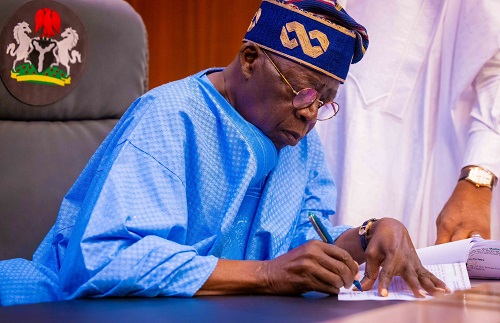At last, the Petroleum Products Pricing Regulatory Agency (PPPRA) has released the latest guiding retail price of premium motor spirit (PMS) also called petrol, at an average of 211.11 per litre for February and possibly March.
A pricing template for the period, February 1 and 28 2021, published on its website and based on latest market determinants on the average costs of imported petroleum products, puts the lower band of the new fuel price for the month at about N209.61 per litre and upper band of N212.61 per litre. The computation is also hinged on the approved average importer & exporter (I&E) Naira exchange rate per dollar of N403.80.
This stems from the increase of crude oil prices at the international market, which currently stands at about $70/barrel.
A review of the pricing template showed the average price per ton of the commodity at about $561.96, or N169.22 per litre, while the average freight rate coat (North-West Europe to West Africa) of about $21.63 per ton, or N6.51 per litre. This translates into an expected ex-coastal price of about N175.73 per litre.
Further scrutiny of the component charges in the pricing template showed that average littering expenses were put at about N4.81 per litre; Nigerian Ports Authority (NPA) charge N2.49 per litre; NIMASA charge N0.23 per litre; Jetty Throughput of N1.61 per litre and Storage charge of N2.58 per litre and average finance cost of N2.17 per litre, translating to an expected landing cost per litre of N189.61.
When other component charges are considered in the computation, including the wholesale margin of N4.03 per litre; administration charge of N1.23 per litre; transporters’ allowance (NTA) of N3.89 per litre; Bridging Fund cost of N7.51 per litre and Marine transport average (MTA) of N0.15 per litre, the expected ex-depot price for wholesale products marketers would be N206.42 per litre.
With the addition of retailers’ margin of N6.19 per litre would bring the expected retail price (lower band) N209.61 per litre and expected retail price (upper band) N212.61 per litre.
Penultimate Monday, Nigerians woke to long queues at filling stations in most parts of the country following rumours that the Nigerian government was set to approve a hike in petrol price to reflect the increase in crude oil prices at the international market, since the commodity no longer enjoys subsidy.
However, the Nigerian National Petroleum Corporation (NNPC) quickly dismissed the speculation, describing it as a creation of greedy marketers interested in scathing profiteering.
The NNPC Spokesperson, Dr Kennie Obateru in a statement said the government was not contemplating any increment in the retail price of PMS.
He said any such decision would scuttle the government’s ongoing engagements with organized labour and other stakeholders on an acceptable framework for fuel pricing in the country.
On the other hand, oil marketers insisted that selling at the current price of N162-N163/litre was commercially suicidal because the current landing cost is about N174 per litre.
“When all other components in the fuel pricing template are taken into consideration, the appropriate retail price for petrol today at the filling stations should be between N210 and N215 per litre for the marketers to break even and stay in business,” one of the marketers noted.
In September 2020, following the last fuel price increase by the government, the NLC threatened to shut down the country with indefinite strike action to protest the decision.
However, after a preliminary agreement, a bilateral committee composed of representatives of the government and Labour was constituted with a mandate to find ways of establishing an acceptable framework for fuel pricing in the country.
Recently, the Coalition of Nigerian Civil Society Organizations for Petroleum and Energy Security (CONCSOPES) has urged the organised labour and other sections of Nigeria kicking against deregulation of the downstream sector to quit playing blind opposition but join forces with the Federal Government to achieve a win-win deregulated environment.
The Convener of CONCSOPES, Mr Timothy Ademola noted that deregulation of petrol was long overdue as subsidy remains an economically injurious scheme.
He noted that with the agitation of labour for the rollback of deregulation, NNPC will inadvertently have to absorb the cost of the price differential between landing cost and pump price.
This, he added, would put the NNPC in a very bad spot financially and eventually lead to a situation where it would be difficult to further import products.
“The obvious implication of that is fuel scarcity and the return of fuel queues.
“If this happens, organized labor that is presently resisting deregulation would be forced to castigate NNPC for not supplying enough fuel to guarantee zero fuel queues and for not making a profit at the end of its financial year”, Ademola explained.
He added that the situation calls for a new and bold approach, even as he suggested that labour should not just constitute downright opposition to deregulation, but partner with government on how to best achieve patriotic, people-centered deregulation; leveraging the new government policy for the soon resumption of Nigerian refineries, the approval of modular refineries and the welcome development of Dangote Mega Refinery.










